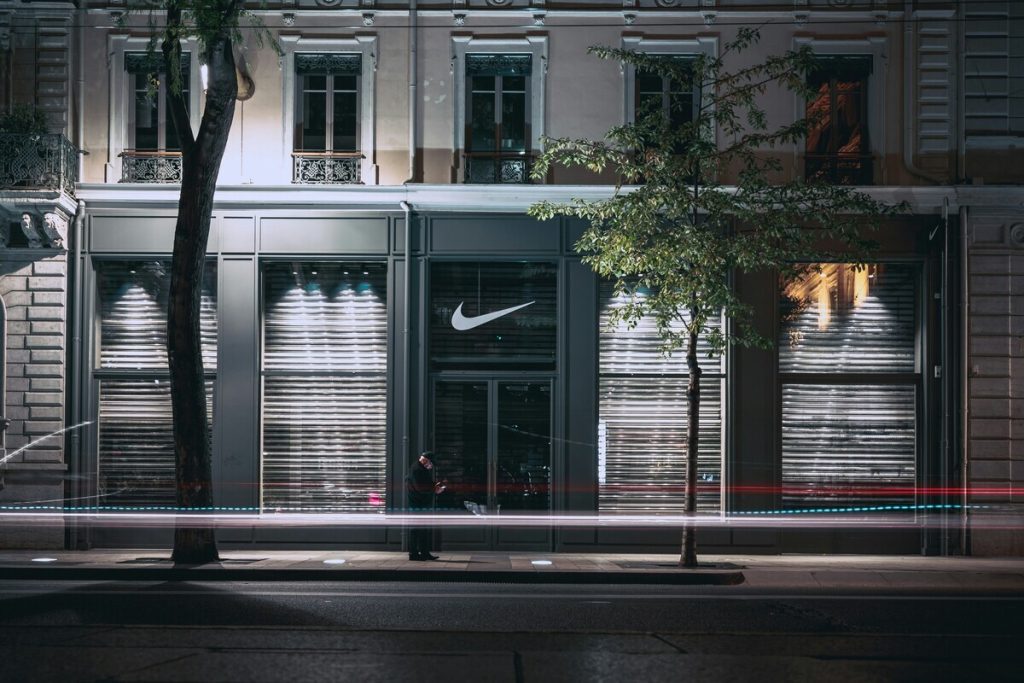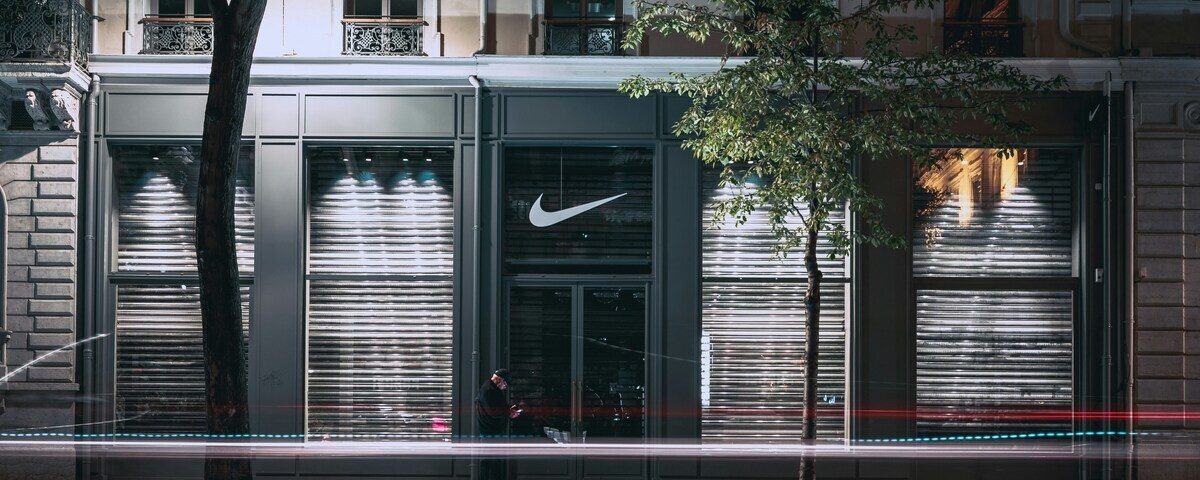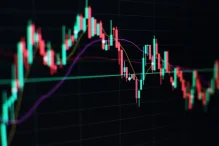
NVIDIA Achieves Record Q1 Revenue, Spurring AI and Bitcoin Mining Synergies
23/05/2024
The Resilience of the US Dollar: A Forex Analysis
24/06/2024The Dutchman Bringing Nike and Lego to Wartime Russia
By Tassilo Hummel, Gleb Stolyarov, Polina Nikolskaya, and David Gauthier-Villars
Nike (NYSE:NKE) halted its sales to Russia shortly after Moscow launched its full-scale invasion of Ukraine over two years ago. However, that hasn’t stopped footballstore.ru, an online sports retailer owned by Russia’s Zenit soccer club, from offering Nike products. One such item is the U.S. sportswear maker’s Phantom GT2 Elite soccer boots, priced at 29,999 roubles, or around $330.
The man responsible for getting these shoes to Russia is Wijnand Herinckx, a 40-year-old Dutch citizen living in Moscow. Since the conflict began, Herinckx has built a successful business providing Russian consumers with Western goods whose manufacturers have withdrawn from the Russian market.

“Nike does not want their products to be shipped to Russia,” Herinckx told Reuters during a video call from his office on the outskirts of Moscow, where shelves are filled with boxes of Western-branded footwear. He added, “They are also not telling us not to do it.”
Both Nike and Lego informed Reuters that they have not authorized Herinckx’s imports of their goods into Russia.
By examining customs data, corporate records, internal company documents, and speaking to Herinckx, Reuters uncovered how his business obtains branded goods like Nike and Lego. His company uses intermediaries with no apparent connection to Russia to purchase the products, then ships them to Russia, often via Turkey, and finally delivers them to retailers in Russia.
There are many firms like Herinckx’s employing grey-market methods to get Western goods into Russia. His operation exemplifies how Western attempts to isolate Russia’s economy are thwarted by global business dynamics: where there’s demand, supply will find a way.
Western Governments’ Limitations
Western restrictions have mainly targeted industrial products that can be used in Russia’s war efforts, which are subject to U.S. and European Union sanctions. Herinckx focuses on consumer goods not covered by these sanctions. Reuters found no evidence that his firm is violating sanctions.
However, companies like Herinckx’s indirectly support the Russian economy. Consumers in Russia can still buy foreign goods they have grown accustomed to since the fall of communism. For example, the value of Nike products imported into Russia plummeted 81% in 2022 to $21 million but rebounded to at least $74 million in 2023.
Nike stated it does not supply Herinckx’s firm or any associated businesses. “We no longer have any Nike-owned physical or digital retail operations in Russia,” the company said. “We do not ship any product to Russia, nor do we authorize any marketplace partners to distribute product there.” They also said they have a dedicated team to investigate unauthorized distribution channels.
In mid-2022, following the invasion of Ukraine, Nike announced it was exiting Russia, and Lego said it was closing its Russian business. As global brands halted sales, Russia authorized businesses to import products without the trademark owner’s permission, known as parallel imports. Russia reported more than $70 billion in such imports up to the end of 2023.
Legal specialists suggest that seeking recourse under Russian law would be challenging for Western brands, leaving few options to enforce intellectual property rights typically tied to the territory where the infringement occurs.
Economic and Political Implications
The availability of Western brands allows Russian President Vladimir Putin to project a message that the war does not disrupt the ‘normal life’ of the Russian middle class, said Sergei Guriev, a Russian economist at Paris’ Sciences Po university.
Herinckx’s Russian company employs 82 staff and forecasts revenues in 2024 of 35 million euros (about $37 million). Last year, it was $23.7 million, according to company accounts.
When Russia invaded Ukraine in 2022, Herinckx was working in the Moscow office of the German company Hellmann Worldwide Logistics. Hellmann decided to pull out of Russia, but Herinckx stayed, having built his life there with his Russian wife and children. He took over one of Hellmann’s Russian entities, renamed it Herinckx Trade Solutions Rus (HTS Rus), and registered it in his wife’s name in April 2022.
Herinckx initially used Hellmann’s email servers and a variation of their logo in his marketing. Both Herinckx and Hellmann said they had a transitional agreement allowing the use of some of Hellmann’s infrastructure. The agreement expired in October 2022, and Herinckx said he stopped using Hellmann logos in January 2024. Hellmann stated they now have no connection to Herinckx’s business.
Business Operations
Herinckx’s firm ships goods like Reebok sports shoes and Emporio Armani wristwatches to Russia. Armani Group said it had stopped authorized shipments to Russian distributors and did not know how HTS Rus obtained the products. Reebok’s owner, Authentic Brands Group, did not respond to a request for comment.
The firm does not publicly disclose its customers, but Reuters identified some Russian clients through documents filed with Russian tax authorities. Customers included major supermarket chains and online retailers.
Herinckx’s achievements include importing Lego bricks, which he says he procures through a chain of intermediaries to avoid direct purchases from the manufacturer. He uses a Netherlands-registered entity to buy the bricks from a European company with no direct ties to his business. The goods are then trucked from Europe to Russia.
Once in Russia, the Lego comes under the control of HTS Rus. Herinckx said he supplies Lego to around 48 Russian firms, mainly toy retailers.
“My children play with Lego,” Herinckx said. “I have nothing against other children playing with Lego.” However, Lego has expressed concerns about his operations.
Navigating Restrictions
Some Western goods are routed through Turkey, a hub for grey-market imports to Russia. Herinckx sources Nike and some Lego products in Turkey through a company called HTS Poer Dis Ticaret Limited Sirketi, which procures goods from Turkish retailers or distributors.
Customs data from June 2022 to December 2023 showed HTS Poer supplied at least $4 million worth of Nike products to Russia. Herinckx said all these shipments were destined for his company.
Nike products reaching Russia are distributed to Herinckx’s retail clients, including footballstore.ru, owned by Zenit soccer club. Zenit is sponsored by Gazprom, Russia’s state-owned gas company, and part-owned by Gazprombank, which is under U.S. sanctions. Neither Gazprombank, Gazprom, nor Zenit responded to requests for comment.
Reuters purchased Nike Phantom GT2 Elite soccer boots from footballstore.ru. The shoes were delivered 10 days later, and the box indicated they were manufactured in September 2022, three months after Nike ceased sales in Russia. The box also had a label identifying HTS Rus as the importer.
thecoins24 bitcoin news about ethereum cryptocurrency airdrop cryptocurrency News Learning Cryptocurrency Gototrip go to France Go to italy go to spain go to china Aypa Group Aypa Web design Aypa SEO Aypa Digital marketing
تحصیل در ایتالیا تحصیل رایگان در ایتالیا پذیرش تحصیلی ایتالیا بورسیه تحصیلی ایتالیا دانشگاه های ایتالیا کارشناسی ارشد در ایتالیا پزشکی درایتالیا
-
Understanding REITs: A Comprehensive Guide for Forex Traders
Understanding REITs: A Comprehensive Guide for Forex Traders Meta Description: Learn about Real Estate Investment Trusts (REITs), how they impact financial markets, and their relationship with […]
-
Understanding Risk Tolerance: A Key Component in Forex Trading
Understanding Risk Tolerance: A Key Component in Forex Trading Meta Description: Discover how to assess and understand your risk tolerance in Forex trading. This comprehensive guide […]
-
How to Invest in Startups
How to Invest in Startups Introduction to Startup Investing Investing in startups can be an exciting and potentially lucrative venture. Startups are early-stage companies that are […]






